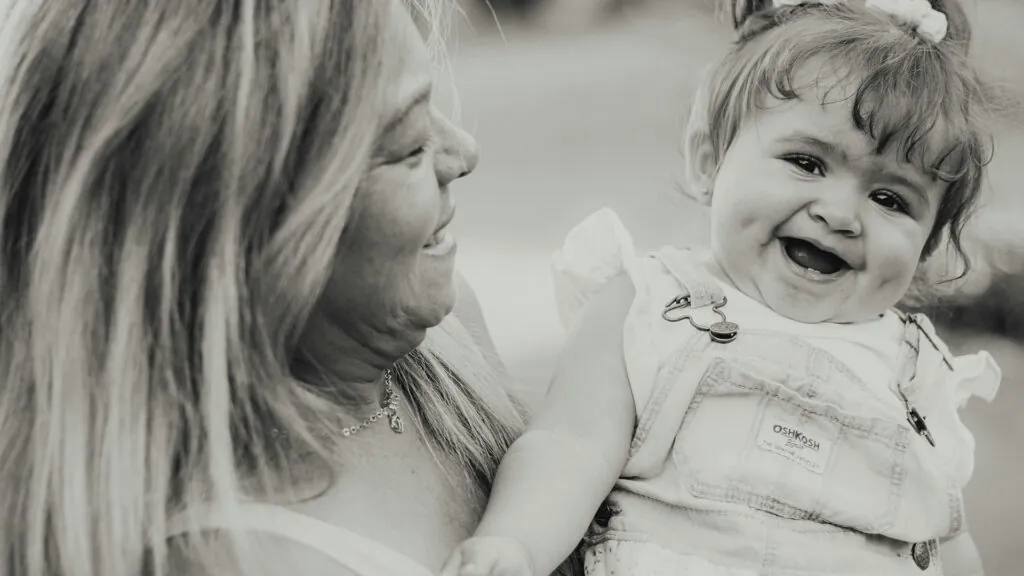When God goes to war: holiness, judgment and hope
“Will not the Judge of all the earth do what is just?” – Gen. 18:25
We don’t deny God’s wrath. We just don’t talk about it.
In Reformed churches, we still hear faithful preaching and clear teaching about sin. But if we listen closely, we might notice something missing: the weight of divine judgment. Grace is front and center – as it should be. But grace without judgment turns sentimental. If we never tremble before God’s justice, how can we truly stand in awe of His mercy?
Even in Reformed worship services, one can notice unease – or even embarrassment – when the congregation is asked to focus on the flood in the days of Noah, the destruction of Sodom and Gomorrah, the plagues on Egypt, or the conquest of Canaan. At Bible studies, it’s common to steer around the “hard parts” of the Old Testament and gravitate instead toward the Gospels. And even there, we prefer the tenderness of Jesus – His compassion, His welcome, His healing – while downplaying His rebukes and His holy severity. The Jesus who weeps is familiar. The Jesus who judges is quietly set aside.
This discomfort isn’t new. But it is deepening. We live in a culture at ease with sin and increasingly hostile to judgment. And when the world forgets God’s wrath, the Church often grows shy about declaring it. In some circles, it’s simply assumed that most people already feel guilty and only need comfort. But what if that’s not true? What if the deeper need is not reassurance, but repentance?
Few topics unsettle modern readers – especially younger believers and those exploring the faith – like the violence found in the Old Testament. Why did God command Israel to destroy entire cities like Jericho? Was this true justice – or religious brutality?
We must approach these questions with care. Scripture never portrays God as the one on trial – we are. The Judge of all the earth is holy, just, and astonishingly patient. He does not owe us an explanation. Yet in His Word, He reveals enough of His character and purposes that we may speak of Him with reverence, and defend His ways with confidence – even when we cannot fully comprehend them. Before we begin to talk about God's judgments in history, it is wise to bow our heads in worship.
The story that troubles many
Nothing in the Old Testament provokes modern objections like Israel’s conquest of Canaan. The books of Deuteronomy and Joshua tell of entire cities “devoted to destruction,” of swords raised not only against warriors but against entire populations. Jericho, Ai, Hazor – the battles pile up – and so does the bloodshed.
To many ears today, it sounds merciless. Unjust. Even barbaric.
But we must not read these accounts in isolation. They are not about ethnic hatred or military conquest. Nor were they Israel’s idea. The command came from the LORD – the covenant God who had rescued His people from Egypt and was now bringing them to the land He had long promised. The conquest was part of God’s own design – not just to give Israel a homeland, but to cleanse a land steeped in corruption.
If we want to make sense of these difficult texts, we must begin where the Bible itself begins – not at Jericho, but in the promises and warnings spoken hundreds of years earlier. Only then can we understand the justice, the gravity, and the long patience of God.
A long patience before judgment
The story begins in Genesis 15. God tells Abram that his descendants will live as strangers in a land not their own for four hundred years. Why such a delay? “Because the iniquity of the Amorites is not yet complete” (Gen. 15:16).
God does not rush to judgment. He gives time – generations of time – for repentance. Yet while He waits, sin accumulates. The wickedness of Canaan grows darker, not lighter.
Leviticus 18 lays bare the moral degradation that had taken root in the land: incest, adultery, homosexual acts, child sacrifice, and even bestiality. God declares, “By all these the nations I am driving out before you have become unclean” (Lev. 18:24). These were not minor cultural quirks. They were systematic, institutionalized violations of God’s created order – acts of defilement practiced and celebrated on a societal scale.
Deuteronomy 12:31 adds, “They even burn their sons and their daughters in the fire to their gods.” The cult of Molech demanded child sacrifice. The shrines of Baal and Asherah were built on ritual prostitution and sexual exploitation (Deut. 23:17–18). Deuteronomy 18:9–12 catalogs even more: sorcery, divination, necromancy, and attempts to summon the dead.
This was not an innocent land. God’s judgment was not arbitrary or reactive. It was measured, deliberate, and just.
And still, He waited. Four centuries passed while the sin of the Amorites ripened. When judgment finally fell, it was not a sudden outburst of wrath – but a long-deferred reckoning from the God who is “slow to anger and abounding in steadfast love” (Ex. 34:6), yet who “will by no means clear the guilty” (Ex. 34:7).
Judgment that anticipates the end
The reckoning that fell on Canaan was never only about Canaan. It was not merely the clearing of one territory for one nation. It was a signpost – a concentrated preview of something far larger. Jericho, Hazor, and Ai were early eruptions of the judgment that will one day encompass the whole world.
In those historical events, God allowed the final verdict to break backward into history. What normally waits for the last day – when every nation will stand before His throne – was, for a time, enacted on the ground. This was not genocide, nor personal vengeance; it was holiness revealed, justice enforced, and a warning sounded to every generation, as we read in Nahum 1:3:
“The LORD is slow to anger and great in power;
the LORD will by no means leave the guilty unpunished.”
“Even in Reformed worship services, one can notice unease – or even embarrassment – when the congregation is asked to focus on the flood in the days of Noah, the destruction of Sodom and Gomorrah, the plagues on Egypt, or the conquest of Canaan…”
Reformed theologians Meredith Kline and Michael Horton call episodes like this “intrusion ethics.” At rare points the future Day of the Lord intrudes into the present: the flood (Gen. 6–9), the fire on Sodom (Gen. 19), the plagues on Egypt (Ex. 7–12), and the fall of Jericho all follow this pattern. Each is real judgment in history, and each foreshadows the greater judgment still to come.
These events are sobering. They are meant to wake us up. God does not always wait until the end; sometimes He judges now so that the world will tremble – and perhaps repent – before it is too late.
Yet even in judgment, mercy shines. Rahab proves it. As her city braced for destruction, she placed her hope not in walls or weapons but in the God of Israel: “I know that the LORD has given you the land” (Josh. 2:9–11). She tied a scarlet cord in her window, and when Jericho fell, she and her family were spared. Scripture later honors her in Christ’s genealogy (Matt. 1:5) and lists her among the heroes of faith (Heb. 11:31). Her story reminds us that the door of mercy is never shut to those who call on the Lord.
The conquest, then, points in two directions: forward to the final judgment and forward to the gospel. Judgment and salvation stand side by side. The God who brings down walls also opens the way of life – and that way is still open today.
God judges His people by the same standard
The judgment that fell on Canaan was not an isolated case – it was a warning. And that warning echoed forward into Israel’s own future. From the outset, God made it unmistakably clear: if His own people defiled the land with the same evils, they would face the same fate.
“You shall keep My statutes and My rules and do none of these abominations… lest the land vomit you out when you make it unclean, as it vomited out the nation that was before you.” – Lev. 18:26,28
This was no metaphor. The land was holy because the Lord Himself dwelled there (Lev. 25:23). It had been entrusted to Israel not as a birthright, but as a gift of grace – a sacred space conditioned on covenant faithfulness. But holiness cannot coexist with moral rot. The very sins that condemned the Canaanites – sexual immorality, idolatry, child sacrifice, and occult practices – were explicitly condemned in Israel. Leviticus 20 drives the point home with even more urgency, spelling out specific punishments and warnings.
Belonging to the covenant did not exempt Israel from judgment. On the contrary, it intensified the call to holiness. As Amos would later declare,
“You only have I known of all the families of the earth; therefore I will punish you for all your iniquities” (Amos 3:2).
Being God’s chosen people does not mean immunity. It means accountability.
And so God waited again. Just as He had waited for the sin of the Amorites to reach its fullness, He waited while Israel wandered. But He would not wait forever. When corruption set in, the land responded just as it had before: it “vomited out” the unfaithful – this time not Canaanites, but the covenant people themselves.
The prophets echo the covenant curses
The warning in Leviticus 18 is no isolated threat. It belongs to an entire covenant framework spelled out in Leviticus 26 and Deuteronomy 28–32. These chapters list blessings for obedience and curses for rebellion: prosperity if Israel walks with God; famine, disease, invasion, and finally exile if they do not.
“If you will not listen … I will set my face against you … lay the land desolate … and scatter you among the nations.” Lev. 26:14,17,32-33
“If you do not obey the voice of the LORD your God … you shall be plucked off the land … and the LORD will scatter you among all peoples.” Deut. 28:15,63-64
The prophets did not invent fresh threats; they applied these covenant curses to their own generation. When Hosea, Jeremiah, Isaiah, and Ezekiel announce judgment, they are activating the very sanctions Moses described. Listen to their words:
Hosea 8:1 – “Sound the trumpet! An eagle hovers over the house of the LORD, for they have broken my covenant.”
Jeremiah 11:8,11 – “They would not listen … therefore I am bringing upon them all the words of this covenant.”
Isaiah 24:5-6 – “The earth is defiled by its people; they have violated the laws … therefore a curse consumes the earth.”
Ezekiel 5:5-8 – “This is Jerusalem … she has rebelled more than the nations … I will execute judgments in her sight.”
These are not poetic exaggerations; they are covenant enforcement. The same holiness that expelled the Canaanites now rises against Israel – on identical grounds. The land that once “vomited out” its former inhabitants is about to do so again.
The lesson is unmistakable: God shows no partiality (Rom. 2:11). His covenant is never a license to sin; it raises the bar. “You only have I known of all the families of the earth; therefore I will punish you for all your iniquities” (Amos 3:2).
Exile: a reverse conquest
The conquest began with walls falling and cities burning; the land changed hands under God’s command. Yet, generations later, the story ran in reverse. Israel – the nation that once expelled the Canaanites – was itself driven out. The sword that had cleared the land now turned against the covenant people, exactly as the Lord had warned:
“Just as the LORD once rejoiced to make you prosper, so He will now rejoice to ruin and destroy you. You will be plucked off the land you are entering to possess.” – Deut. 28:63
That warning came true.
722 BC: Assyria erased the northern kingdom.
586 BC: Babylon leveled Jerusalem and burned the temple.
The exile was no tragic mishap; it was the covenant curses in motion. Israel had filled the land with idolatry, bloodshed, and injustice. God’s patience, as in the days of the Amorites, finally reached its limit. The biblical record is blunt:
2 Kings 17:7-8, 18 – Israel adopted “the customs of the nations… therefore the LORD removed them from His sight.”
2 Chronicles 36:14-17 – They mocked God’s messengers “until there was no remedy.”
Lamentations 1:8 – “Jerusalem sinned grievously; therefore she became filthy.”
Ezekiel 36:17-19 – “They defiled the land… so I poured out My wrath upon them.”
Israel had become indistinguishable from the nations it replaced, and the land “vomited them out” just as Leviticus had warned.
In that sense, exile is a mirror image of conquest. What Jericho tasted, Jerusalem tasted. The covenant verdict had been on the books for centuries; the sentence was finally executed. God’s holiness shows no favoritism: what was true for Canaan was true for Israel – and what was true for Israel is true for every nation on earth today.
The nations are not exempt
One of the most striking features of the Old Testament prophets is how much attention they give to the fate of foreign nations. These are not passing mentions or political footnotes. They are extended oracles – whole chapters – declaring that the God of Israel is also the Judge of every nation. Babylon, Tyre, Egypt, Edom – the prophetic message is clear: no kingdom is above God’s moral law.
This was revolutionary in its own time. In a world that believed in tribal gods and local deities, Israel’s prophets proclaimed something astonishing: Yahweh reigns over all. His authority is universal. His holiness is not a private code for His covenant people – it is the moral fabric of creation. Every people, every government, every culture is accountable to Him.
The scope and weight of these oracles is remarkable:
Amos 1-2 opens with judgment not on Israel but on six surrounding nations – Damascus, Gaza, Tyre, Edom, Ammon, and Moab – condemned for brutality, betrayal, and injustice.
Isaiah 13-23 includes a sweeping sequence of prophecies against Babylon, Assyria, Philistia, Moab, Damascus, Egypt, Cush, Arabia, and Tyre.
Jeremiah 46-51 announces God's sentence on Egypt, Philistia, Moab, Ammon, Edom, Damascus, Kedar, Elam, and Babylon.
Ezekiel 25-32 warns Ammon, Moab, Edom, Philistia, Tyre, Sidon, and Egypt in vivid, terrifying detail.
Obadiah, Nahum, and Jonah are wholly focused on foreign nations: Edom, Nineveh, and Assyria.
What sins are condemned? Not ceremonial infractions – but moral evils: violence, greed, pride, idolatry, cruelty, exploitation, and the shedding of innocent blood. These are not violations of Israel’s covenant – they are violations of God’s image in humanity. As Paul later affirms in Romans 2:14-15, even those without the written law are accountable to the law written on the conscience.
In other words, God’s justice is not narrow. It is global. His concern is not confined to His covenant people – it extends to all peoples. When the strong crush the weak, when kings exalt themselves as gods, when nations corrupt His good creation, He sees, He warns and He judges.
This truth helps us understand not only the judgment on Canaan but every judgment throughout redemptive history. It is not about divine favoritism. It is about divine holiness. And when we read of God’s acts of judgment in Scripture, we should respond not with suspicion or defiance – but with reverence and awe. As we read in Isaiah 33:5 & 22:
“The LORD is exalted, for he dwells on high;
he will fill Zion with justice and righteousness…
For the LORD is our judge; the LORD is our lawgiver;
the LORD is our king; he will save us.”
He is the Holy One of Israel. And the Holy One of all the earth.
Judgment fell on Him
The covenant story does not end in ruin. Judgment is never God’s final word.
The exile to Babylon, devastating though it was, pointed beyond itself. Like the conquest, it foreshadowed something greater. The curse of the covenant would not only fall on a rebellious people – it would one day fall on the faithful Son.
Jesus Christ did not come to avoid the curse but to bear it. He, too, was “cut off from the land of the living” (Is. 53:8). He suffered “outside the camp” (Heb. 13:12). He was handed over to the Gentiles and condemned under Roman power. In Him, the fire of Jericho and the desolation of Jerusalem converged. The judgment that Israel had earned and that all humanity deserves, fell on the sinless one.
And yet death could not hold the Holy One.
His resurrection was the true return from exile – the beginning of a new covenant, a new creation, and a new land.
“He has caused us to be born again to a living hope… to an inheritance that is imperishable, undefiled, and unfading” (1 Pet. 1:3-4).
All who belong to Christ are welcomed back from exile and secured in a kingdom that cannot be shaken.
But the warning remains. God’s holiness has not changed. His judgment is not a thing of the past.
To the church in Ephesus, Jesus says, “If you do not repent, I will come to you and remove your lampstand from its place” (Rev. 2:5).
The lesson is as urgent now as it was then: God is patient – but He is not indifferent. And judgment still begins at His house....































